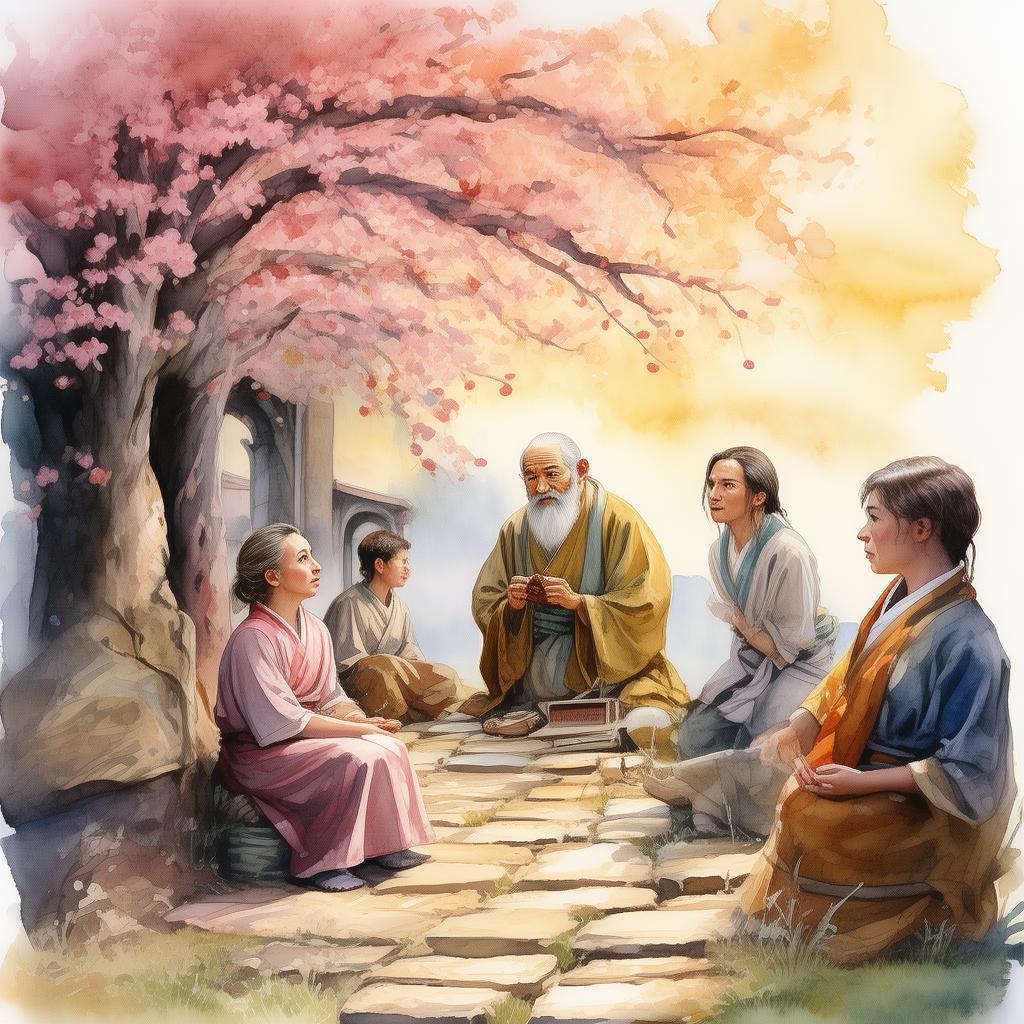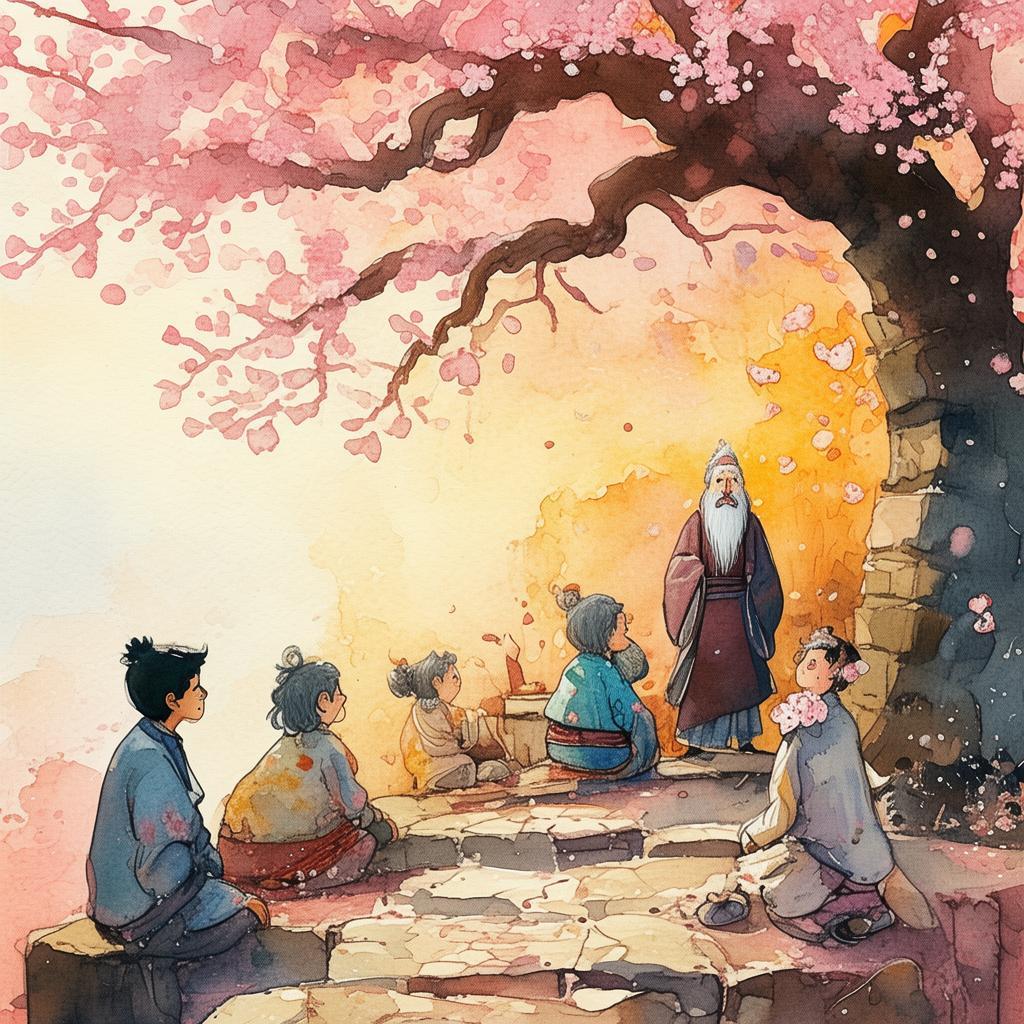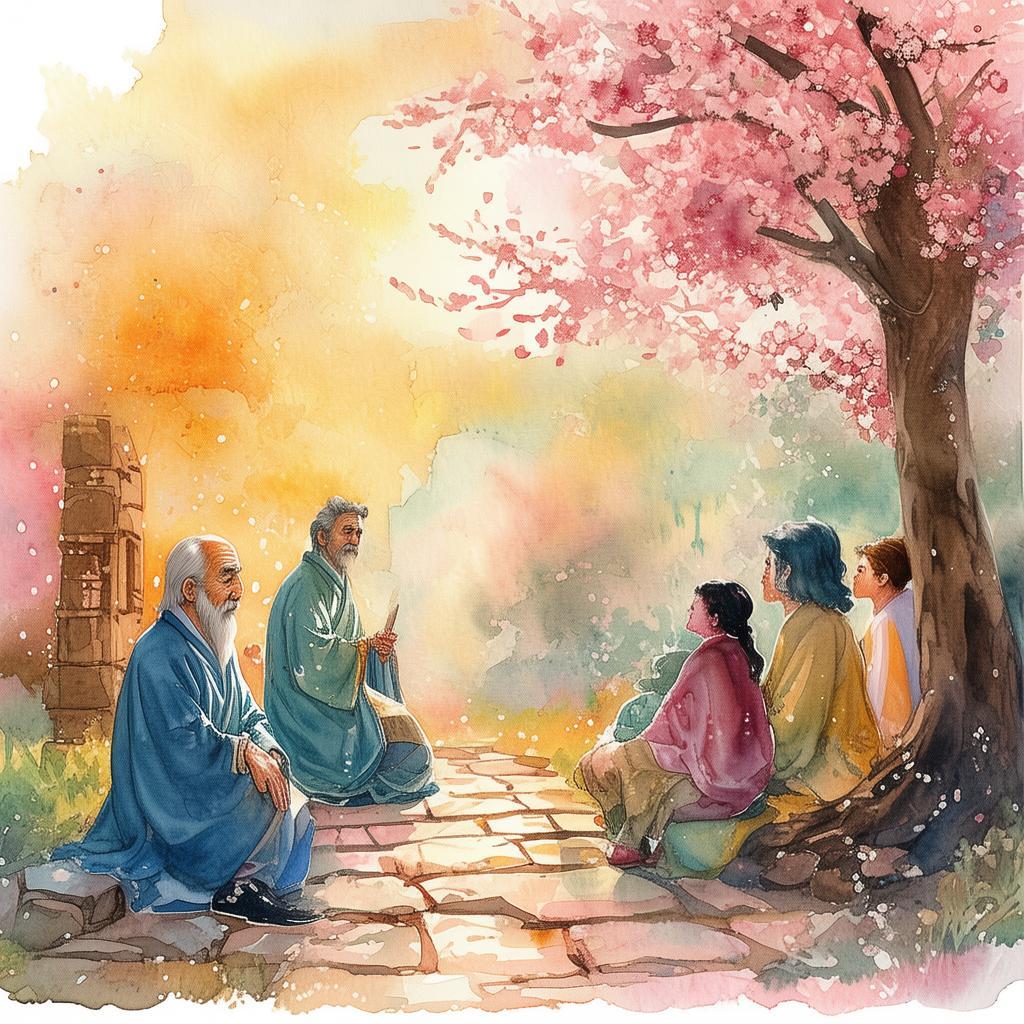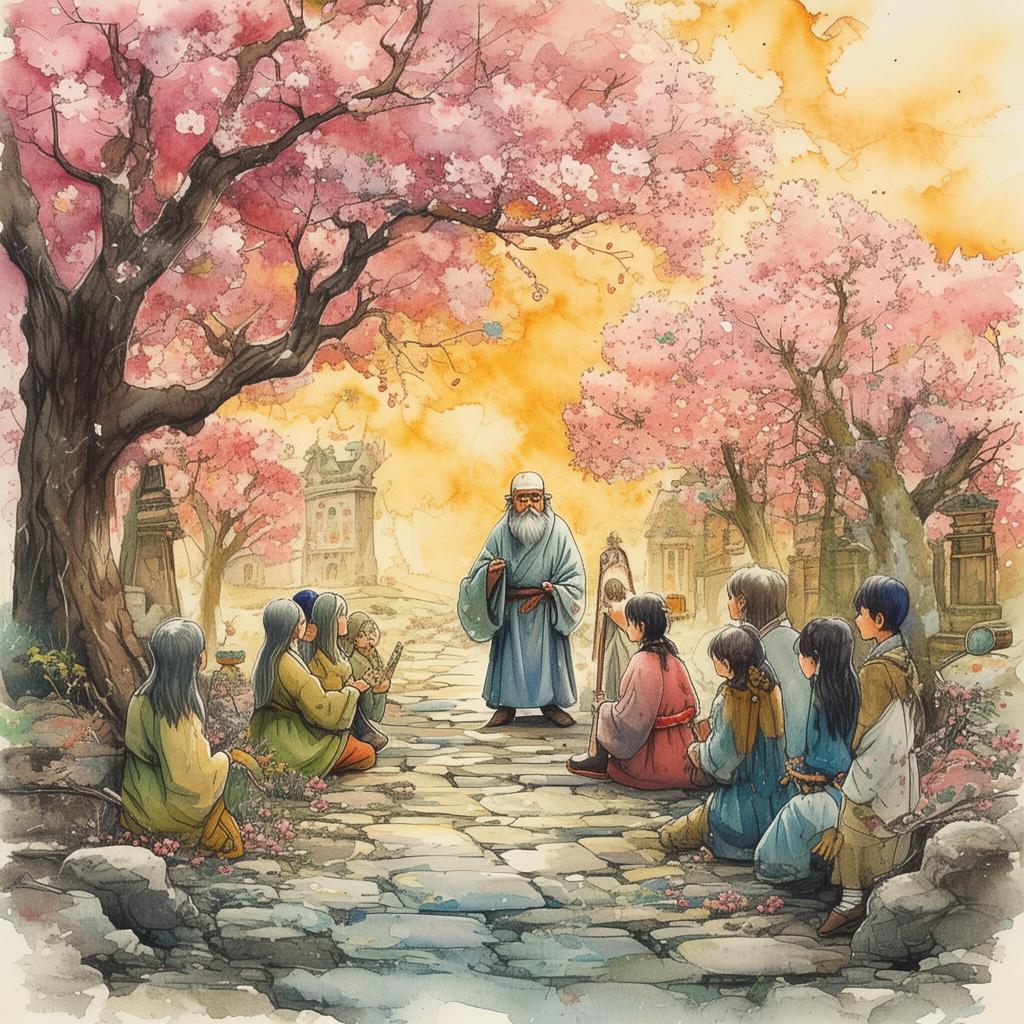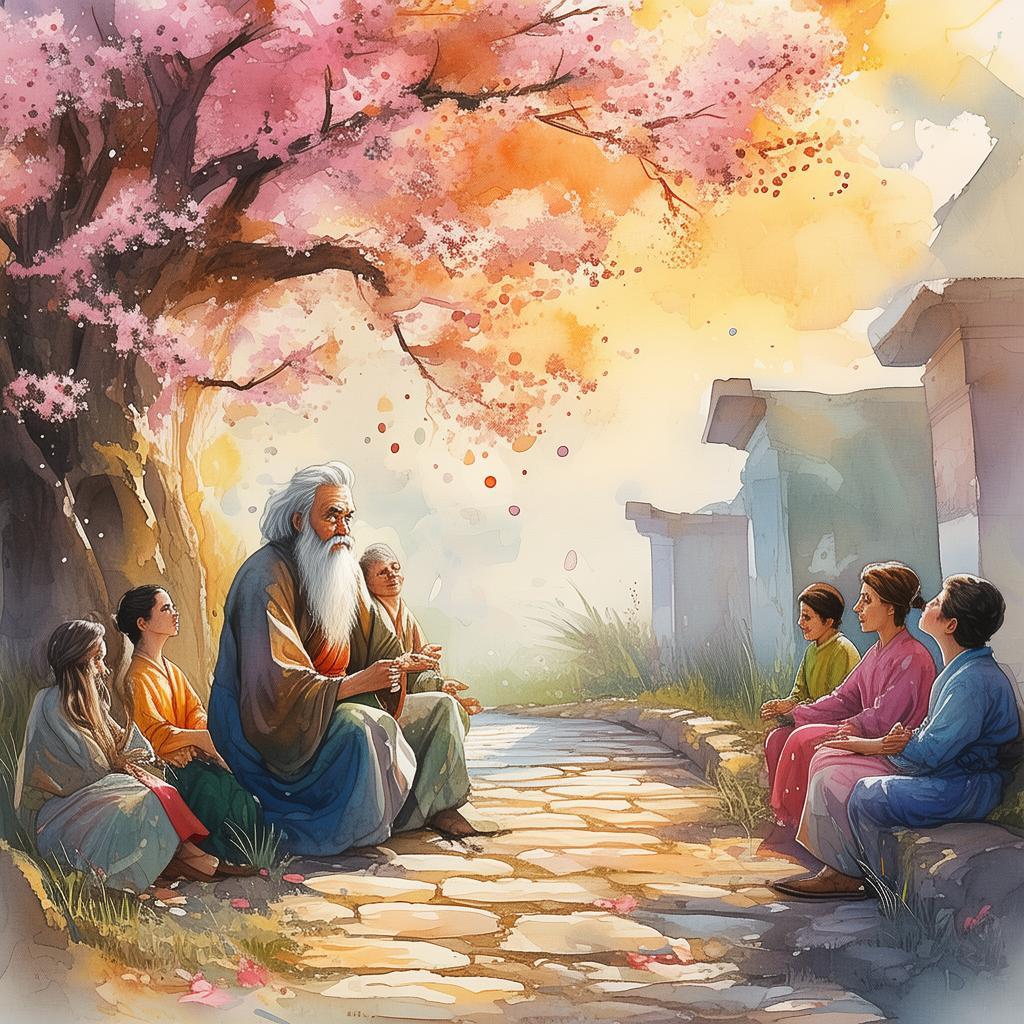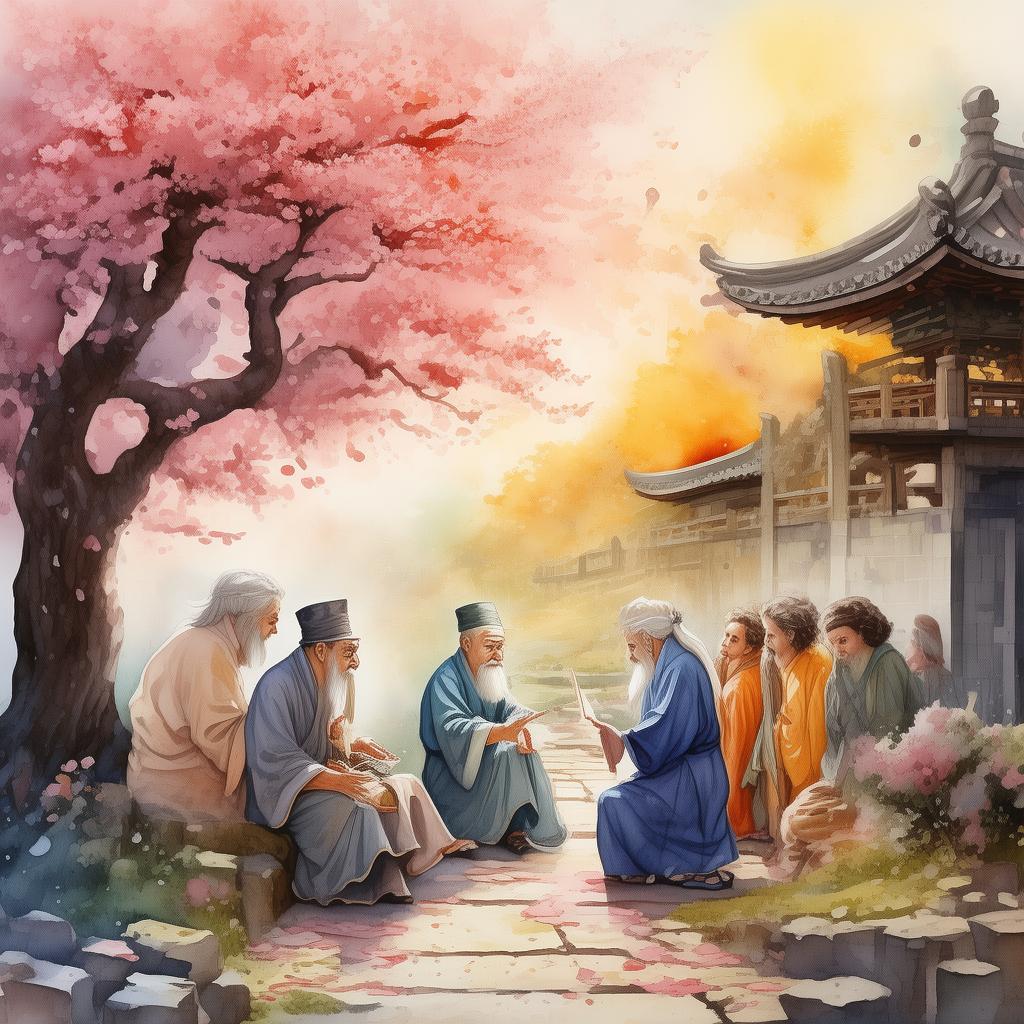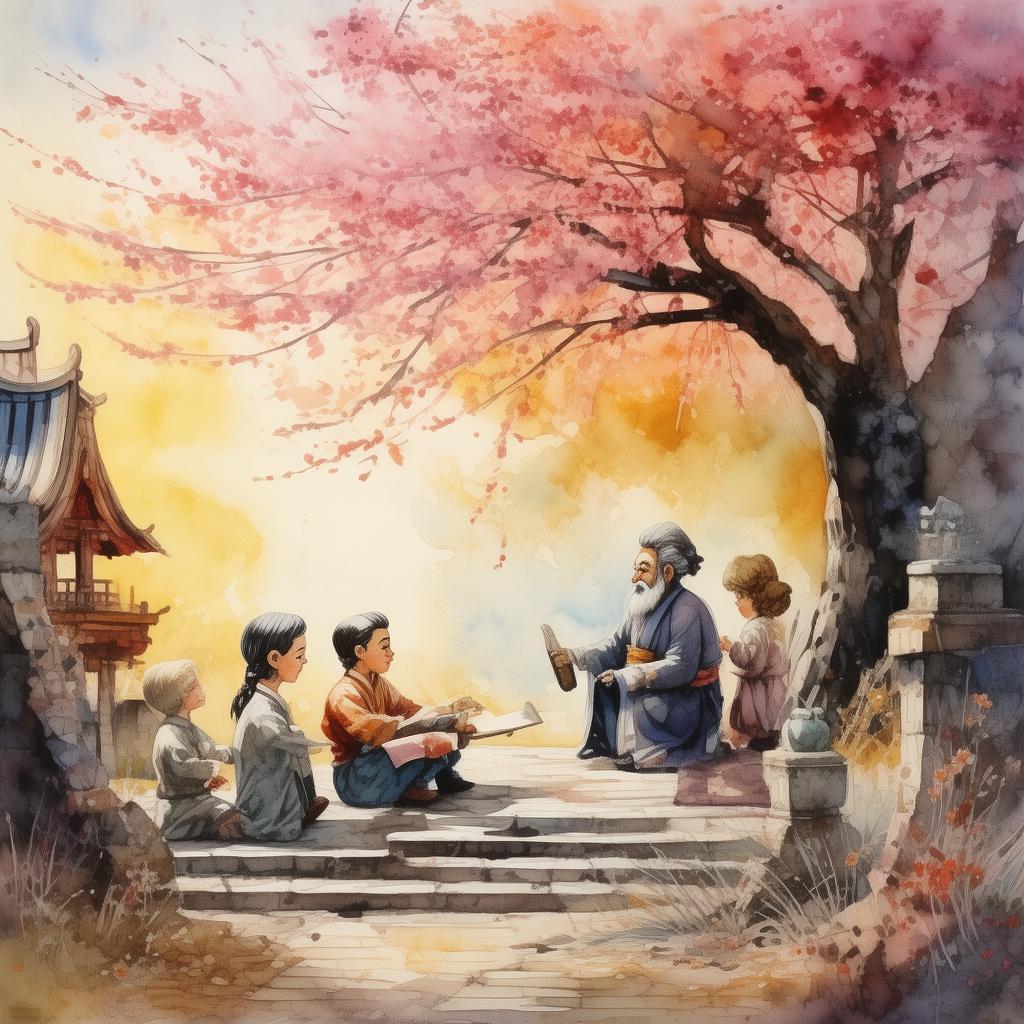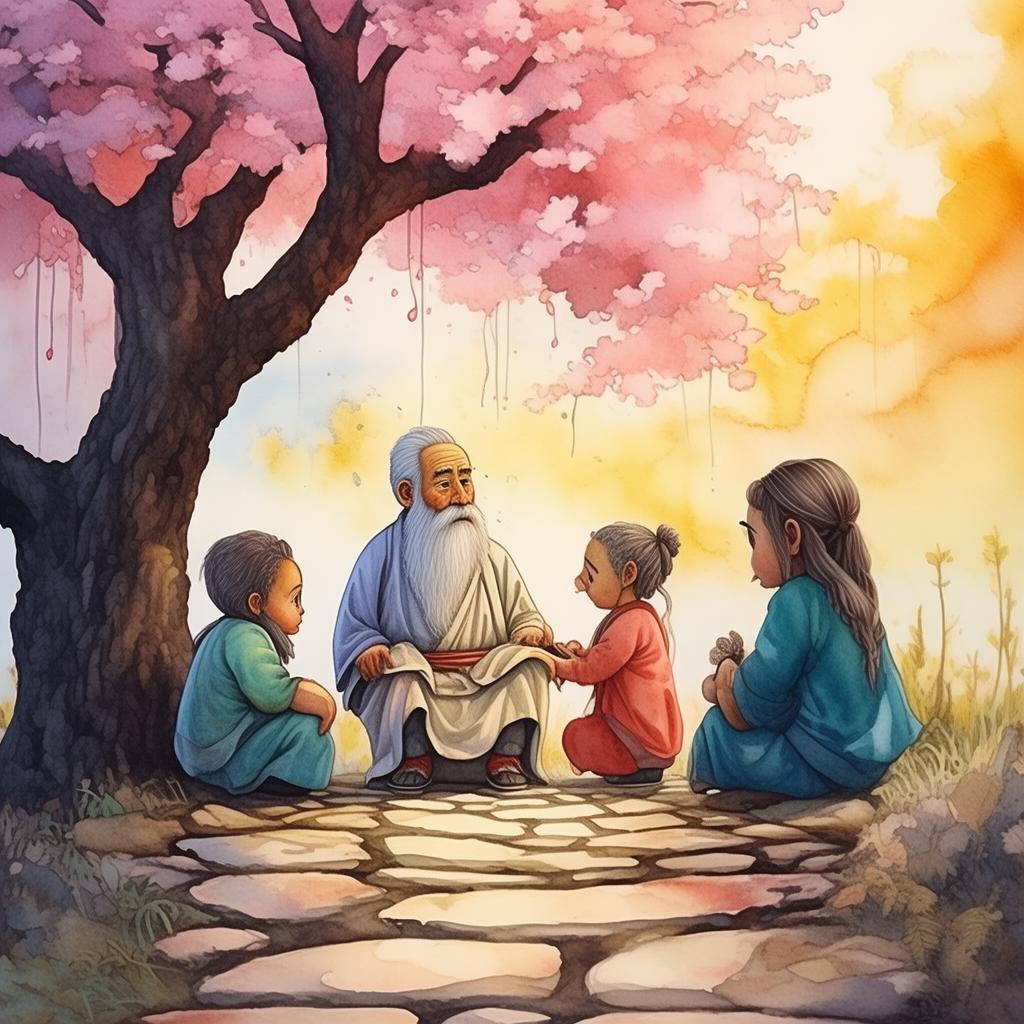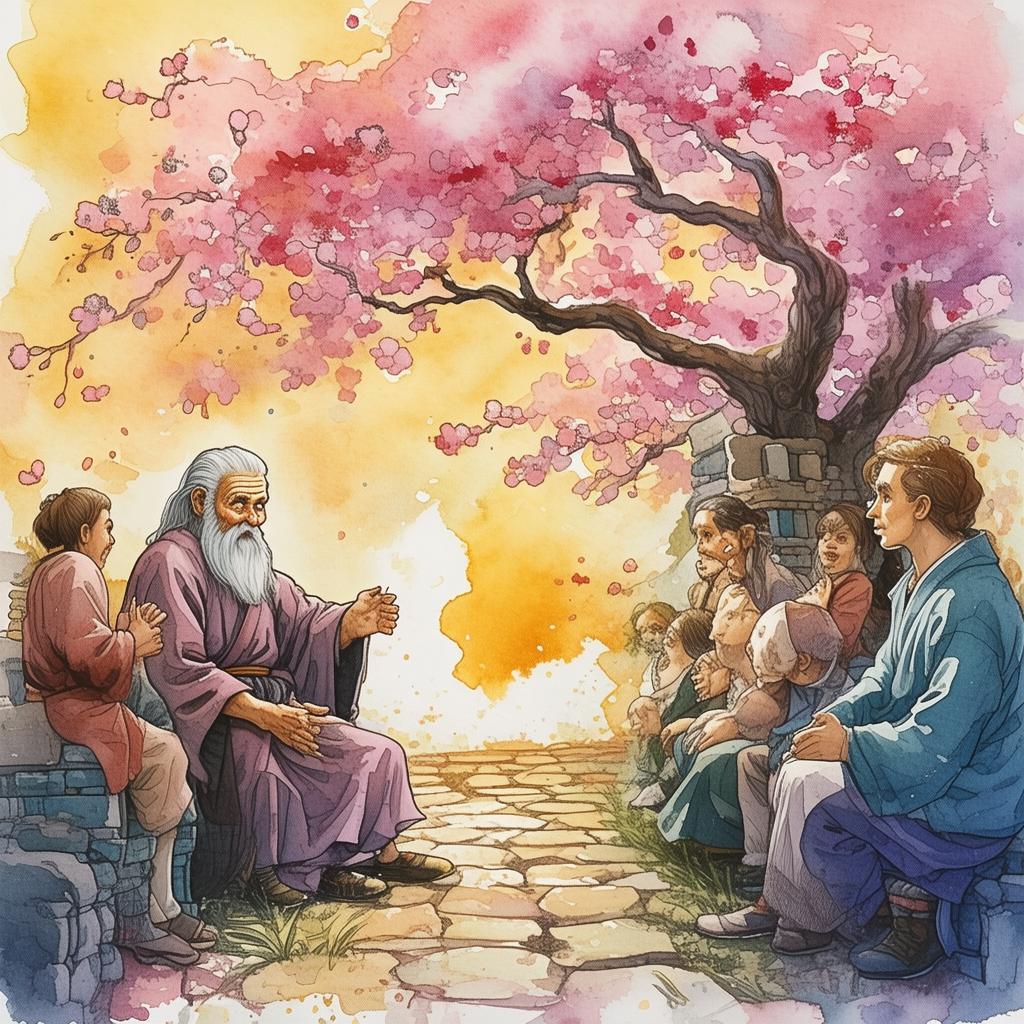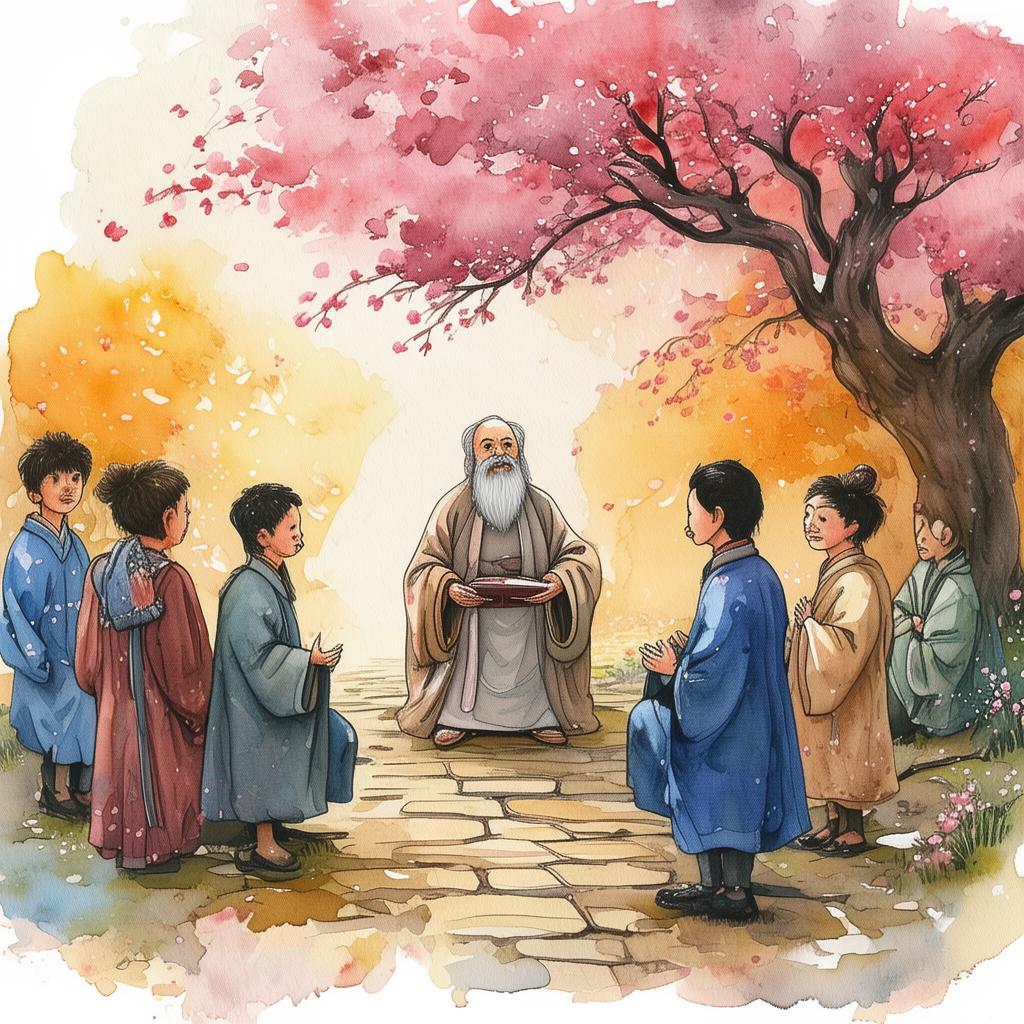The Quest for the Lost Wisdom: The Philosopher's Enigma
In the heart of ancient China, there was a legend that spoke of a lost wisdom, a treasure trove of knowledge that had been hidden for centuries. This wisdom was said to hold the key to understanding the mysteries of the universe and to unlock the potential of human beings. Many had tried to find it, but none had succeeded. It was a quest that had become legendary, a quest that had been shrouded in mystery and enigma.
Among the many who had sought the lost wisdom was a philosopher named Zhen. Zhen was a man of great intellect and unyielding determination. He had spent years studying ancient texts and poring over ancient ruins, but he had found no trace of the lost wisdom. Yet, his quest was unyielding, and he was determined to uncover the truth.
One day, while Zhen was delving into the annals of an ancient library, he stumbled upon a peculiar scroll. The scroll was unlike any he had ever seen, adorned with intricate patterns and symbols that seemed to dance and swirl in the light. As he unrolled it, a voice echoed through the room, a voice that seemed to come from everywhere and nowhere at once.
"Seek not the wisdom in the books, but in the enigmas that bind them," the voice said. "The lost wisdom is not a treasure to be found, but a puzzle to be solved."
Zhen's heart raced with excitement. He knew that this was the turning point in his quest. He had to find the enigma that would lead him to the lost wisdom. He began to search the library for any clues that might help him solve the puzzle.
Days turned into weeks, and weeks into months. Zhen scoured the library, poring over scrolls, searching for the enigma. He discovered that the symbols on the scroll were a part of an ancient code, a code that could only be deciphered by someone who understood the language of the ancients.
As Zhen worked to decipher the code, he found himself drawn to a particular scroll that spoke of a philosopher named Laozi, the founder of Taoism. Laozi was said to have been a master of the ancient language and a seeker of wisdom. Zhen realized that he might find the key to the enigma in the teachings of Laozi.
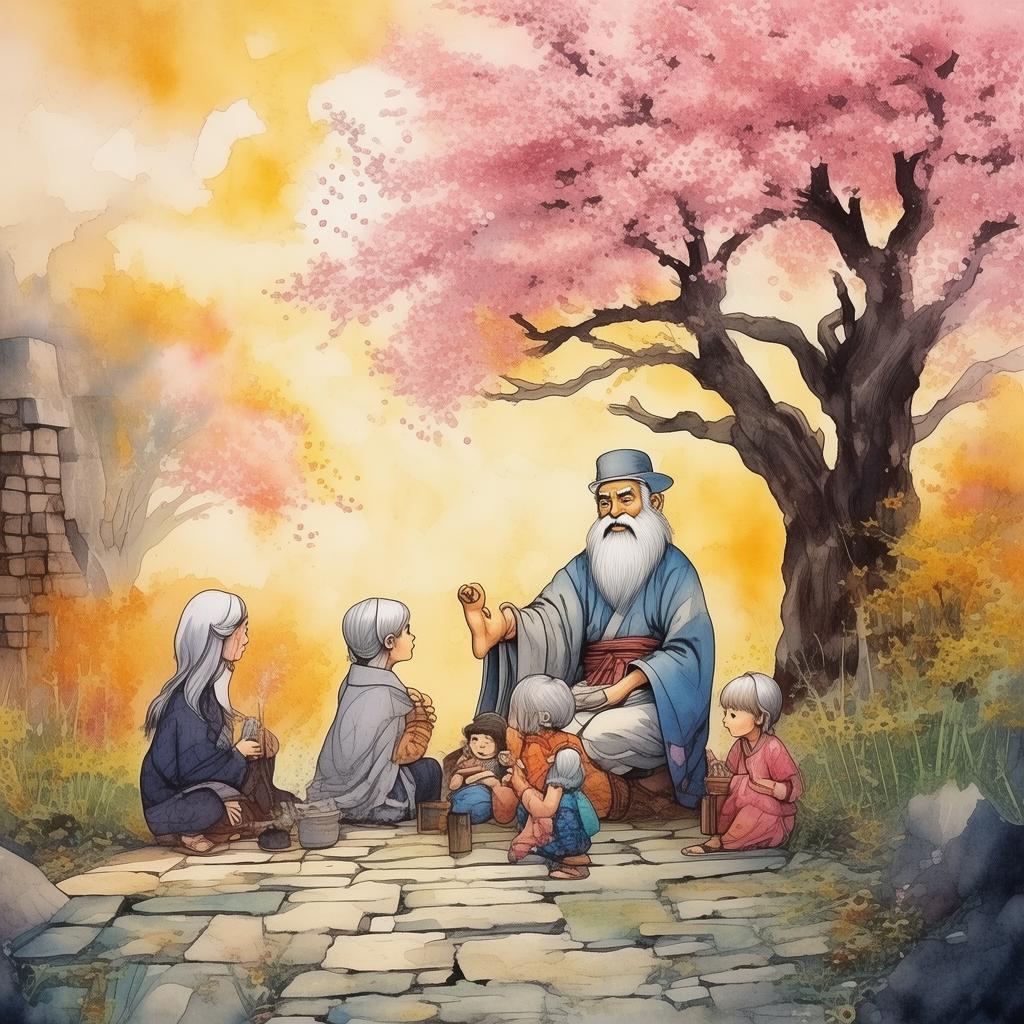
Zhen traveled to the mountains where Laozi was said to have lived, seeking guidance from the monks who had preserved his teachings. As he spoke with the monks, he realized that the lost wisdom was not a single piece of knowledge, but a collection of wisdoms, each one a fragment of the whole.
The monks spoke of the Five Elements—Wood, Fire, Earth, Metal, and Water—and how they were the essence of the universe. They explained that the lost wisdom could be found by understanding the balance of these elements and how they interrelated.
Zhen returned to the library, determined to uncover the remaining fragments of the lost wisdom. He spent countless hours searching, until one day, he found a scroll that spoke of a final enigma, a riddle that would lead him to the ultimate wisdom.
The riddle was simple yet profound: "What is the sound of one hand clapping?"
Zhen pondered the riddle for days, until he finally realized that the answer was not in the riddle itself, but in the act of clapping. The sound of one hand clapping was the sound of the universe acknowledging its own existence. It was the sound of unity and harmony.
With this realization, Zhen understood that the lost wisdom was not a treasure to be found, but a state of being to be achieved. He learned that true wisdom came from within, from the balance and harmony of one's own mind.
Zhen returned to the library, where he shared his discovery with the monks. They were overjoyed, for they had been waiting for someone to come and unlock the final enigma. With Zhen's help, they began to teach the people the wisdom of the Five Elements and the importance of balance and harmony.
The story of Zhen's quest for the lost wisdom spread far and wide, inspiring people to seek wisdom within themselves and to find harmony in the world around them. The legend of the lost wisdom became a beacon of hope, a reminder that true wisdom is always within reach.
In the end, Zhen realized that the quest for the lost wisdom was not about finding a treasure, but about finding oneself. It was about understanding that wisdom is not a destination, but a journey, a journey that continues as long as we seek to understand the world around us and the essence of our own being.
✨ Original Statement ✨
All articles published on this website (including but not limited to text, images, videos, and other content) are original or authorized for reposting and are protected by relevant laws. Without the explicit written permission of this website, no individual or organization may copy, modify, repost, or use the content for commercial purposes.
If you need to quote or cooperate, please contact this site for authorization. We reserve the right to pursue legal responsibility for any unauthorized use.
Hereby declared.
